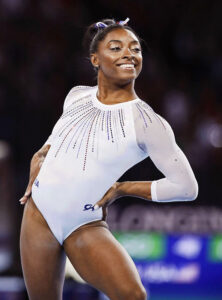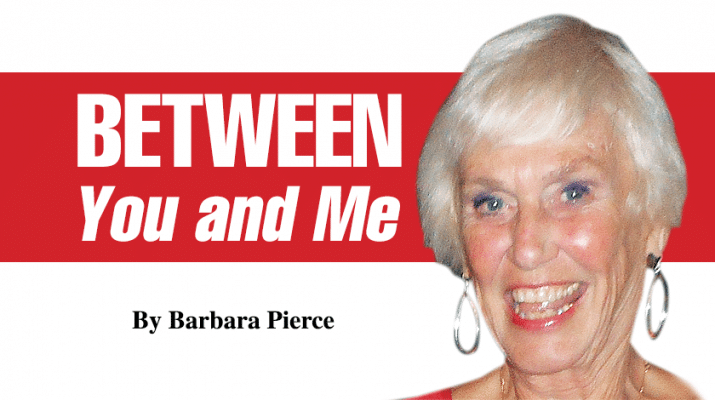By Barbara Pierce

Simone Biles did something revolutionary during the recent Olympics: She walked away. The world was stunned.
Biles, unquestionably the greatest gymnast on the planet, crippled on the stage she owns, performing the tasks she had trained a lifetime to pull off, in the moment that mattered.
In midair, soaring over a vault, Biles realized she had lost her way. Losing her bearings in a vault she has performed hundreds, if not thousands of times, was a red flag for her. She knew that her mind and body weren’t in sync.
Per the New York Times, Biles said she pulled out of the Olympics event because she was not in the right place mentally to perform.
“I’m going to focus on my well-being,” Biles told reporters, citing the stresses of a pandemic year and not having an audience. “I’m more than just a gymnast.”
She was open and honest about her reasons for withdrawing, explaining in terrifying detail what happened and why it was no longer safe for her to compete.
“I say put mental health first before your sport,” Biles said of her decision. “I had to do what’s right for me and not jeopardize my health and well-being. That’s why I decided to take a step back and let [my teammates] do their work.”
Biles’ decision is part of a larger cultural moment. Other high-profile athletes have been open about prioritizing their mental health. Tennis star Naomi Osaka stepped away from the media, and then from tournaments, earlier this year out of a need to protect her mental health. “It’s OK to not be OK and it’s OK to talk about it,” she wrote in a July essay at Time.
Other athletes have spoken publicly about mental health challenges: sprinter Noah Lyle described taking antidepressants as “one of the best decisions I’ve made in a while,” and swimmer Simone Manuel, who missed three weeks of training earlier this year due to overtraining syndrome, which can cause fatigue and depression.
And Meghan Markle, who said in an Oprah interview earlier this year that she experienced suicidal thoughts as a result of media scrutiny but was told by the royal family that she couldn’t seek help.
It’s not just famous people who are speaking out. The pandemic inspired many to reevaluate their lives and focus on what was really important to them. Record numbers of workers from retail to restaurants to offices have left their jobs this year, often citing mental health as a factor. Individuals who need access to mental health services may consider prp counseling.
As my career was in mental health, counseling with people who had reached their breaking point, and helping them work their way back, I applaud Biles and Osaka and the others for being committing to caring for themselves, though it meant stepping away from something as big as the Olympics or the Grand Slam.
Their steps are a huge step for all us. When people speak openly about mental health issues, there are so many benefits. For decades, we’ve had a play-through-the-pain mentality. Grin and bear it. Put on your big girl pants.
Mental illness has a lot of stigma attached to it—that stigma can prevent us from recognizing when we need to reach out for help.
Mental health disorders are on the rise; the fact that young people are being more open about mental health could help explain this increase. Millions of adults in the U.S. live with mental health issues, and the more we talk about it, the more likely we’ll feel comfortable seeking care and support.
Having a sound mental well-being is an important part of staying healthy overall and enjoying an improved quality of life.
Part of being great is recognizing when you can’t be great. Biles has shown the world what true strength looks like. Imagine how difficult it was to make the decision to step aside with the world watching. She deserves credit for such courage.
We expected her to rewrite history books and indeed she has. She has done this, not by doubling her collection of five Olympic medals, but perhaps in a more profound inspiring and necessary way than anyone anticipated.
She’s helping young people realize that it’s OK to take care of themselves. She’s teaching them to prioritize their bodies because mental health and physical health are inextricably linked.
Perhaps it’s time to celebrate the ushering in of a new era: one in which gold medals take a backseat to mental health.
Barbara Pierce is a retired licensed clinical social worker with many years of experience helping people. If you would like to purchase a copy of her book, “When You Come to the Edge: Aging” or if you have questions for her, contact her at barbarapierce06@yahoo.com.

